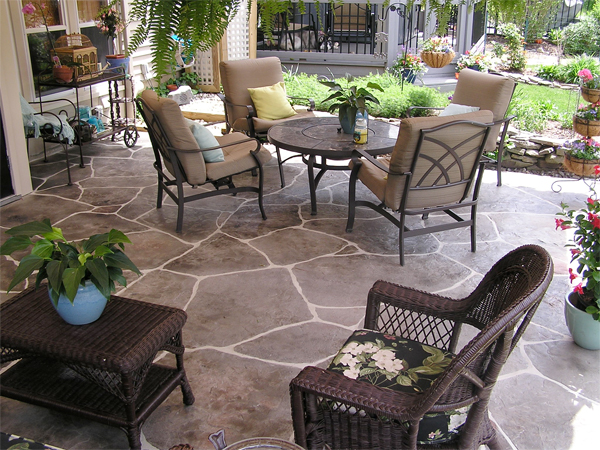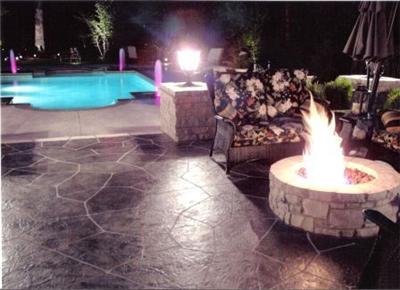Concrete Patios
Despite stiff competition from wood decks, the concrete patio is gaining in popularity as an essential element in today’s backyards. According to a survey conducted by the National Association of Home Builders in 2012, concrete is the most popular patio material in the country.
In seven of nine geographical regions identified in the study, poured concrete is the most commonly used outdoor surface material in luxury-home construction coming in ahead of concrete pavers and natural stone. With more decorative options than ever before, concrete patios are attracting homeowners who want an outdoor surface that offers the ultimate in design versatility. Concrete patios also have the edge when it comes to durability and low maintenance.
In addition to serving as a gathering zone for lounging and entertaining, concrete patios allow homeowners to seamlessly blend interior and exterior living spaces. They are the perfect decorative flooring surface for outdoor kitchens and living rooms, complete with cozy seating areas, fireplaces and water features. What’s more, this outdoor floor offers unlimited design options. When enhanced by stains and integral colors, concrete patios can be color coordinated to match a home’s exterior or landscape. They can also be stamped or engraved in patterns that mimic other popular paving materials, such as brick, flagstone, slate and tile.
As an investment, concrete patios typically cost less than patios made of brick or natural stone because they are less labor-intensive to install. The lower price tag combined with the wide array of patterns and colors available make concrete an economical choice for most budgets. Plus, concrete is easily formed into any shape to accommodate backyard space restrictions.
Upgrading your backyard with a decorative concrete patio is also an investment that will provide many years of enjoyment while improving the look of your landscape. Concrete is easy to maintain and can stand up to the harshest of weather conditions. Unlike paving stones, you won’t have joints between units where grass and weeds can sprout. And unlike wood, concrete won’t warp, rot or require periodic staining.




How much would it cost for a 3 inch thick slab for this area.
Using what you normally use for a garage slab?
for a 36ft X 30ft floor